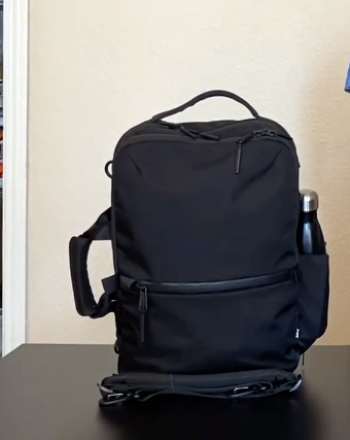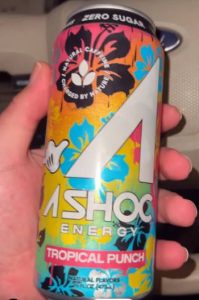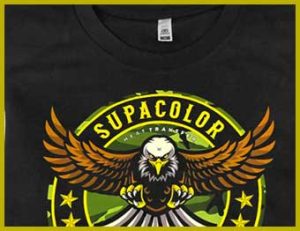Imagine you’re on a hike, your backpack straining under the weight of the essential gear you’re carrying. With every step, you understand the value of the material that composes your backpack.
It’s in such moments of adventure that the battle of the fabrics – X-Pac versus Cordura – truly comes alive.
A Brief Comparison Table
| Feature | X-Pac | Cordura |
| Origin | Sailcloth Industry | Textile Industry |
| Weight | Lightweight | Generally Heavier |
| Waterproofness | Waterproof | Water-Resistant (not inherently waterproof) |
| Abrasion Resistance | High | High |
| UV Resistance | High | Less compared to X-Pac |
| Cost | Higher | More Affordable |
| Flexibility | More Rigid | More Flexible |
| Applications | Backpacking, Sailing, Outdoor Gear | Military Wear, Luggage, O |
X-Pac: A Lightweight Competitor

Before we dive into the intricacies of this debate, let’s answer a frequently asked question: What is X-Pac material? Originating from the sailcloth industry, X-Pac is a composite fabric that brings together multiple layers of materials for a singular purpose – durability paired with lightness.
Pros of X-Pac
Is X-Pac material good? Absolutely. X-Pac is famously lightweight. With its laminate design, it offers exceptional strength-to-weight ratio, a boon for long-distance travelers and hikers.
Moreover, X-Pac is waterproof. The inclusion of a PET film in the laminate sandwich effectively blocks water, protecting your gear from the elements.
Another advantage is the fabric’s resistance to abrasion, courtesy of its exterior nylon face. This means less worrying about wear and tear, even when you’re navigating harsh terrains.
Cons of X-Pac
One major downside to X-Pac is its cost. Given its high-tech construction, X-Pac is typically more expensive than traditional fabrics like Cordura.
Additionally, the material’s rigidity can be a disadvantage. Some find the stiff nature of X-Pac less comfortable or aesthetically pleasing than softer, more flexible fabrics.
Read More: About AER Travel Pack 3 Vs. Peak Design Travel Bag
Cordura: The Tough Contender

Now, let’s turn to Cordura, another heavyweight in the fabric industry. Known for its durability, Cordura is a brand name for a collection of fabrics used in a wide array of products, from luggage and backpacks to military wear.
Pros of Cordura
A key advantage of Cordura is its robustness. Especially when discussing Cordura ballistic fabric, this material is designed to withstand tough conditions and resist punctures and tears.
Cordura is also cost-effective. Compared to X-Pac, it offers a more affordable option for those seeking durability without breaking the bank.
Additionally, Cordura has a soft, flexible feel. Unlike the rigidity of X-Pac, Cordura can offer a more comfortable experience for users who prefer a softer touch.
Cons of Cordura
The first downside to consider is Cordura’s weight. Generally, it is heavier than X-Pac, which can be a downside for those seeking to minimize their load.
Secondly, while Cordura can be made water-resistant, it is not inherently waterproof. For complete protection from the elements, additional treatments or liners are often necessary.
Lastly, while Cordura is resistant to abrasion, it may be less resistant to UV degradation compared to X-Pac. This could be an important consideration for those planning to expose their gear to constant sunlight.
X-Pac vs Cordura: The Showdown
So, is Xpac lighter than Cordura? Yes, generally speaking, X-Pac is lighter than Cordura, making it a preferred choice for weight-conscious adventurers.
However, answering the question, “Is Cordura 500 better than X Pac?” isn’t as straightforward. It depends on your specific needs. For rugged durability and cost-effectiveness, Cordura stands out. But for those valuing lightweight, waterproof gear, X-Pac takes the lead.
Frequently Asked Questions (FAQs)
Yes, X-Pac is typically lighter than Cordura. It’s this lightweight characteristic that makes it a favorite among long-distance hikers and backpackers.
Yes, X-Pac material is well-regarded for its combination of lightness, durability, and waterproofness. Its layered design contributes to its robustness, making it a good choice for outdoor gear.
The answer depends on your specific needs. Cordura 500 is highly durable and cost-effective, making it a solid choice for rugged use. However, if you prioritize lightness and waterproofness, X-Pac might be a better fit.
X-Pac is a composite fabric that originates from the sailcloth industry. It’s made up of multiple layers of materials, including nylon, PET film, and polyester, creating a durable and lightweight fabric.
Cordura fabric is not inherently waterproof. It is highly durable and can be made water-resistant, but for complete waterproof protection, it usually requires additional treatments or liners.
Cordura ballistic fabric is a type of Cordura fabric that was originally developed for military body armor due to its extreme durability and resistance to tears and punctures. Today, it’s used in a variety of applications, including luggage and backpacks, where high-durability is needed.
Read More: About Timbuk2 Vs. Chrome Industries
In Conclusion
The great debate of X-Pac vs Cordura is not about declaring a winner, but about understanding these two powerhouses. Both fabrics bring their strengths and weaknesses to the table. It is up to the individual adventurer to decide which one suits their needs the best. Remember, the best fabric for you is the one that checks off most of your requirements, be it weight, durability, cost, or waterproofness. Happy adventuring!



